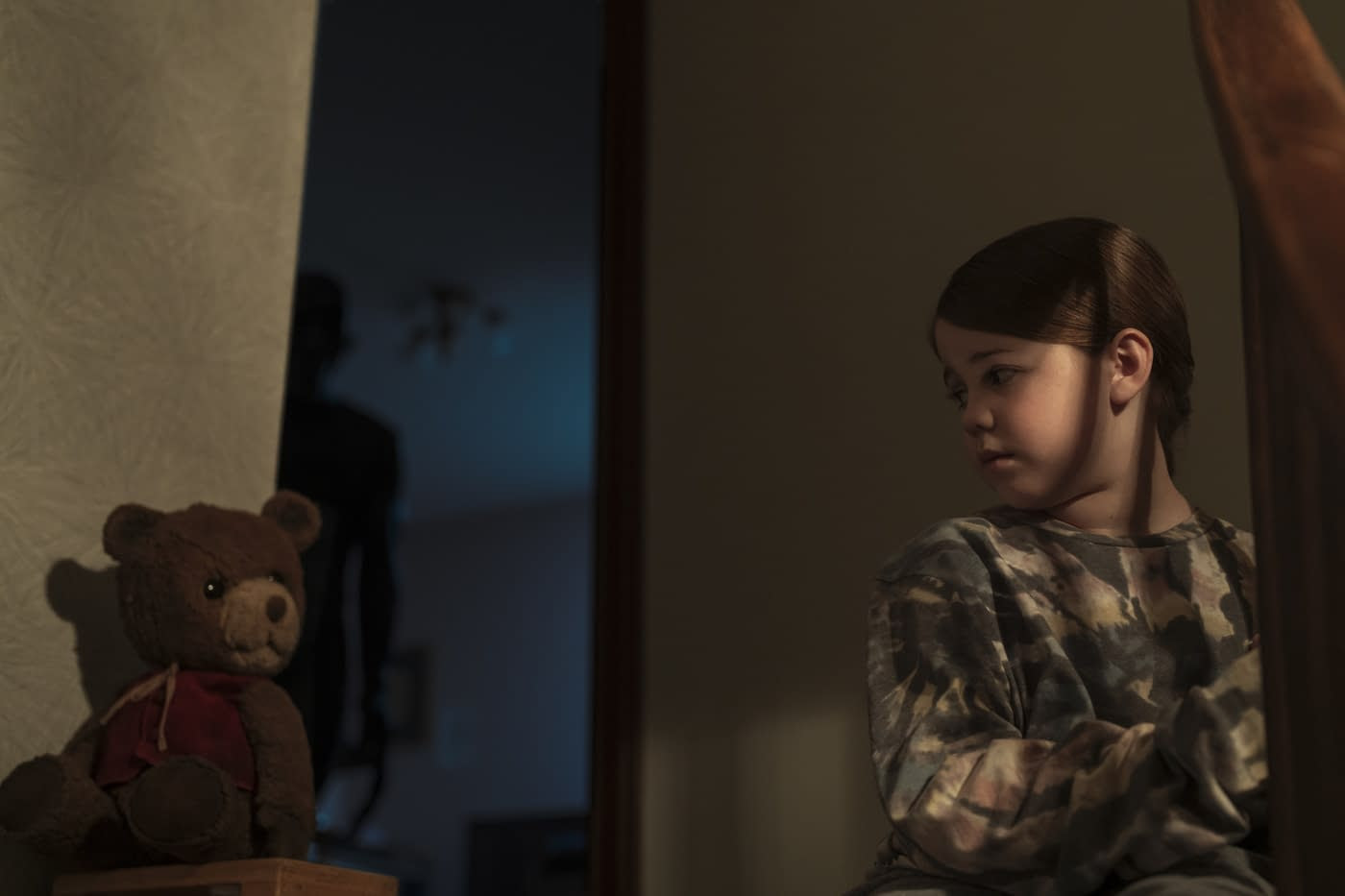
News
Progressive Labor Party Organizes Solidarity March With Harvard Yard Encampment

News
Encampment Protesters Briefly Raise 3 Palestinian Flags Over Harvard Yard

News
Mayor Wu Cancels Harvard Event After Affinity Groups Withdraw Over Emerson Encampment Police Response

News
Harvard Yard To Remain Indefinitely Closed Amid Encampment

News
HUPD Chief Says Harvard Yard Encampment is Peaceful, Defends Students’ Right to Protest
‘Imaginary’ Review: A Film That Lacks Imagination
Dir. Jeff Wadlow — 2.5 Stars

Despite its name, “Imaginary” by Jeff Wadlow lacks imagination. This newly released horror movie follows Jess and her two step-daughters, Taylor and Alice, as they navigate a malicious supernatural entity that presents itself as Alice’s imaginary friend. Upon moving into Jess’s childhood home, Alice finds a teddy bear named Chauncy in the basement. Their companionship starts innocently, but Chauncy quickly reveals itself as a supernatural entity, pushing Alice to complete a harmful scavenger hunt to bring her to “never ever” — the place of its origin.
Through the concept of imaginary friends, Wadlow aimed to interlace the contrasting nature of childhood innocence and supernatural malevolence. While this premise is interesting, the execution of the film unfortunately lacks imagination, sharing an uncanny amount of similarities with the film “Coraline” while falling into the traps of badly executed horror movie clichés.
Upon first viewing, it is hard to deny the similarities between this film and Coraline — a stop motion film about a girl that meets a supernatural entity called the “other mother” and her experience of being enticed to the “other world,” where all her dreams could come true. Both films explore the concept of a supernatural being that attaches itself to a child and tries to bring them to another, more twisted world. Beyond premise similarities, they also share an unbelievably large amount of similarities in the details. Both involve a doll as the representation of the entity, feature a small hidden door as the gateway into another world, represent their entities in the form of spiders, and give the people of the supernatural world creepy eyes — doll buttons in “Coraline” and teddy bear eyes in “Imaginary.” All these similarities seem to be beyond coincidental. Imaginary seems to be devoid of any originality in its plot points.
Even though the two films are similar, “Imaginary” included a variety of creative choices that made the film lackluster. While “Coraline” allows watchers to connect the mysteries of the plot themselves — to such a great extent that there are still theory videos posted online even today — “Imaginary” does the opposite. The film is constantly telling viewers rather than trusting them to make connections themselves. The film does a poor job of worldbuilding and has moments of awkward exposition, specifically with the character of Gloria. She was utilized to create exposition and push the plot forward, then immediately killed off after this purpose was served. Gloria’s dialogue was also the main way that audiences learned about Jess’s past, which lessened the emotional impact of her dad’s sacrifice when viewers learned of this final reveal.
The film repeatedly tries to create impactful plot twists, but also repeatedly falls short such as in the reveal that Chuancy is not seen by everyone. Instead of slowly building to the revelation, it was suddenly and awkwardly sprung onto viewers. It seemed like the movie wanted to execute a classic horror movie twist, but wasn’t able to create an effective one.
While “Imaginary” fell short in many areas, it did have some great performances and cinematic choices. Pyper Braun who portrayed Alice did a phenomenal job in depicting childhood innocence while unsettling viewers. During the scene where Alice argues with Chauncey, Braun gave a raw and passionate performance. She perfectly blended the frustration, sadness, and anger of Alice while simultaneously balancing giving voice to Chauncey.
Cinematically, there was one choice that stuck out: Jess checks under the bed because she sees the top of Chauncy’s head. During the first check, the camera pans beneath the bed before panning up and down again. The typical choice is to present a jumpscare when the shot pans down, but instead the camera pan is used to transition to the next scene. Expectations are cleverly subverted and the juxtaposition of the clean transition takes viewers by surprise.
“Imaginary” has snippets of potential, but the lack of imagination throughout the film takes viewers out of the story and holds the film back. The film showed great promise with its innovative concept of portraying imaginary friends in a sinister light, yet it ultimately failed to capitalize on this idea effectively.
Want to keep up with breaking news? Subscribe to our email newsletter.
